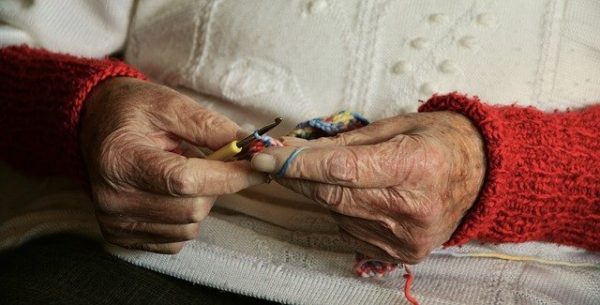Life can’t always be perfect, and making mistakes occasionally is a fact of human life – from the small slip up or error of judgment to behavior that we know is wrong and carry out anyway. As humans, we are fallible, no matter what personal standards we try to uphold, and sometimes circumstances can seem to conspire to push us into a situation we wouldn’t normally condone, and we lose our mental stability. When you know you’ve messed up though, how on earth do you go about making it right?
Confronting our own self-image and admitting our behaviors has been stupid, ill-advised or downright malicious is incredibly hard, and for many, the natural instinct is to bury that head in the sand and completely ignore what’s happening – even if we know that is rarely tenable for long. However, to follow that path is to completely miss the upside of making a horrible mistake – the opportunity for growth and self-development that presents us with. If we truly want to turn misfortune and bad judgment into something with a silver lining, then we need to learn to accept our mistakes, face them out and try to make amends and resolve the situation to the best of our ability. Then, and only then, will be able to move on with anything like grace in our lives.
Step One – Assess and Acknowledge
Growing as a person necessarily involves pushing ourselves out of our comfort zones, and this can be really painful, especially when it comes as result of having acted in a manner we know to be less than honorable. You’ll know, deep in the pit of your stomach, when you’ve gone badly wrong. Sometimes it can result in struggling to manage anxiety around the deed and its consequences. Panic results in a fight or flight response where our best judgment is clouded and we catastrophize an outcome that’s marked by disaster – perhaps losing your job, losing a spouse or a close friend as a result of selfish actions on our part. You need to try and calm down enough to assess with a level head the severity of what has occurred. What would you counsel a friend in the same situation to do? Try to remove yourself from the situation and see it in the abstract. Small mistakes, such as an impolitic comment or a project management mistake at work, maybe resolvable without the involvement of others. If you had decent intentions, but a bad outcome, often you can rectify the situation with a sincere apology and a plan to make sure that it doesn’t occur again. However, if the issue is larger, it may take considerably more to fix it. You need to try and work out the potential ramifications of your wrongdoing – typically, this will be a range of scenarios, from worst to best case and then a sort of middle ground outcome. But reaching any kind of resolution makes it absolutely necessary to understand exactly who and what you’ve affected with your mistake.
Take Back Control
One of the worst parts of mentally coping with the aftermath of a bad event, even if it is one you’ve caused yourself, is feeling helpless. You’ve started something, but now it’s grown bigger than you could ever have imagined. Taking back control is essential to galvanize you into action and give you back some sense of personal agency over your own fate. It’s time to come up with a game plan. Often you’ll find that owning up and apologizing is much easier to swallow – for yourself and others – if it comes accompanied with some suggested steps to move towards resolving the situation. Your game plan will depend on the type and severity of the mistake that you thought through in the first step. It could require anything from coming up with a series of actions to ensure a project or a budget doesn’t spiral out of control again, to issues of accountability in your personal life, such as offering to attend marriage counseling or looking into a sober living house. You could plan on making formal apologies in a work context, shuffling resources to make sure a project gets completed or working extra hours to steer something back onto the right course. It’s very rare that there will be absolutely nothing you can offer in order to begin what is usually a process of righting your wrongs.
Run Some Mental Practice
The thought of owning up to something you’ve done wrong is not an easy one, challenging as it does every notion of pride, professionalism and who we are as a person. It’s no wonder that we often go to quite extreme lengths to avoid uttering the word sorry – but if we are to be fully in control of our own destiny, to grow as people and to be good leaders at work and at home, then it’s a word we need to get comfortable with. If the idea of owning up and apologizing is frightening, it can be a real help to mentally rehearse and even jot down some notes on exactly what you are going to say. This gives you a script of sorts, one that can make the initial confession a little easier, although you must be careful to follow it up with some spontaneous words from the heart if you don’t want to risk looking a little too rehearsed to be genuine. It’s generally a good idea to keep your initial apology brief. Outline what happened in simple, factual terms, trying to keep as much emotion or tendency to shift the blame as you can out of it. If the situation is still unfolding, you might what to state what you expect the consequences of your actions to be. Acknowledge the blame – say you are sorry and be specific about what you’re apologizing for – absolutely avoid apologizing for the feelings of the other person as that does not acknowledge your own role and bad choices and may leave them feeling that you’re being disingenuous. State your game plan for making it right, briefly and ask for the view of the other party on that. It can be extremely tempting to try and protect ourselves by wading in with excuses, but this is never a good idea. Focus on the fact that however unpleasant the moment is, you have taken as much power as you can back by owning up – and take comfort in the fact that you can’t be caught out and humiliated if you’ve chosen to own up.
Moving on from bad decisions and mistakes is one of the toughest things we can do – but if you learn to master the process and eventually come to some sort of self-forgiveness, then it can be one of the most valuable opportunities for growth you’ll ever be given.






Life is really sure to throw us some curveballs, and sometimes we don’t always handle them in the best way. But there are ways to cope as you pointed out here! Thanks for sharing!
No one likes having to admit they made a mistake or to apologize, but doing those things is part of learning to take responsibility. Still, it sucks, lol.
It is not always easy to admit when we have made a mistake or bad judgment, But what we can do is take a step forward and start healing from those wounds.
@tisonlyme143